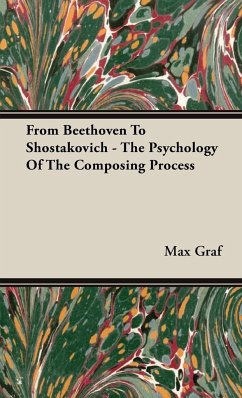Since the publication of Solomon Volkov's disputed memoirs of Dmitri Shostakovich, the composer and his music has been subject to heated debate concerning how the musical meaning of his works can be understood in relationship to the composer's life within the Soviet State. While much ink has been spilled, very little work has attempted to define how Shostakovich's music has remained so arresting not only to those within the Soviet culture, but also to Western audiences - even though such audiences are often largely ignorant of the compositional context or even the biography of the composer. This book offers a useful corrective: setting aside biographically grounded and traditional analytical modes of explication, Reichardt uncovers and explores the musical ambiguities of four of the composer's middle string quartets, especially those ambiguities located in moments of rupture within the musical structure. The music is constantly collapsing, reversing, inverting and denying its own structural imperatives. Reichardt argues that such confrontation of the musical language with itself, though perhaps interpretable as Shostakovich's own unique version of double-speak, also poignantly articulates the fractured state of a more general form of modern subjectivity. Reichardt employs the framework of Lacanian psychoanalysis to offer a cogent explanation of this connection between disruptive musical process and modern subjectivity. The ruptures of Shostakovich's music become symptoms of the pathologies at the core of modern subjectivity. These symptoms, in turn, relate to the Lacanian concept of the real, which is the empty kernel around which the modern subject constructs reality. This framework proves invaluable in developing a powerful, original hermeneutic understanding of the music. Read through the lens of the real, the riddles written into the quartets reveal the arbitrary and contingent state of the musical subject's constructed reality, reflecting pathologies ende
Bitte wählen Sie Ihr Anliegen aus.
Rechnungen
Retourenschein anfordern
Bestellstatus
Storno









